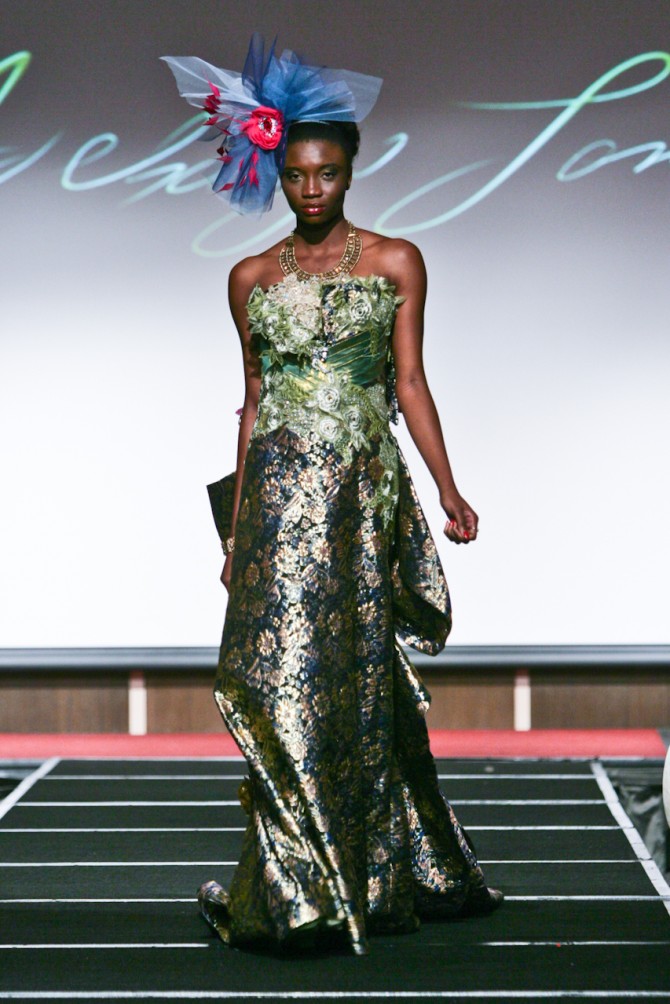Nigerian Fashion shines brighter in London
 Selfridges' new collection of West African-influenced fashion shows that UK shoppers – and the international fashion industry – are broadening their style horizons.
Selfridges' new collection of West African-influenced fashion shows that UK shoppers – and the international fashion industry – are broadening their style horizons.
"Milan, London, New York, Paris. Why not Lagos?" asks Penny McDonald, organiser of the Arise showcase for up-and-coming African designers. Nigerian fashion labels move one step closer to that ambition this week with the launch of Ndani (AKA the Nigerian Fashion Project) at Selfridges in London. The pop-up boutique will offer a one-stop shop for burgeoning designers from the continent, and signifies a marked change in attitudes towards African fashion.
"Coming to Selfridges and bringing my collection to a wider audience is a dream come true," says designer Lanre Da Silva Ajayi. "It gives my brand key positioning that strategically places us at the centre of the world's retail fashion industry." All the Nigerian designers taking part in Ndani share a common passion for prints and patterns. Ankara – the boldly printed West African fabric – is everyday wear in Nigeria. However, traditional influences have been reappropriated: Eki Orleans creates silk empire-line dresses with blownup prints that create shades of colour, rather than discernible imagery. Jewel by Lisa, on the other hand, goes all-out on embellishment, emphasizing the traditional hand-beading skills of Nigerian couture.
Western designers have traditionally taken a lofty, generalised view of Africa as a source of "tribal" or even animal prints. Michael Kors, Gucci and Roberto Cavalli are just three brands that recently used West Africa as a source of inspiration, while Vivienne Westwood's Ethical Fashion Africa Collection, which promoted clothes made in Nairobi, was a rare exception to the rule.
Style House Files, an industry body focused on making fashion a viable business model for designers in Nigeria and beyond, believes that the Selfridges project could be hugely influential in changing the way the industry regards African designers. For the collections to hang meters away from those of Stella McCartney and Marc Jacobs represents an important vote of confidence. "The designers from Lagos are drawing on inspiration which is unique, and ultimately offering our customers the opportunity to discover new ways to experience luxury fashion," says Judd Crane, Selfridges' director of womenswear.
"We have been taking note of the development of the fashion scene over there [Nigeria] for the past couple of years and have been thinking of bringing them to London for a while," says Crane. "With a strong resurgence of prints, patterns and Africana in recent collections from more established international brands, it felt right this year to demonstrate the power and originality of Africa itself."
Lagos has one of the biggest growing economies in Africa but, until recently, the Nigerian government had a ban on importing materials. In lifting it, the threadbare textile industry was able to slowly rebuild itself, although for some cotton mills it was too late: many no longer exist. In a country that suffers the frustrations of erratic electricity supply, often averaging four hours a day with power, designers face serious challenges with the production of clothes or keeping shop. For Orleans, Selfridges is "the first bricks-and-mortar shop to sell our pieces and I'm thrilled to debut in such fabulous surroundings!"
The Arise showcase will take place in March 2013. The designers available at Selfridges as part of the Nigerian Fashion Project are: Lisa Folawyio with her label Jewel by Lisa, Lanre Da Silva Ajayi, Eki Orleans, Odio Mimonet and Tiffany Amber. Edited collections from two up-and-coming young designers, Agu Anumudu with his label Agu and Jennifer Adighije's label, House of Silk.
info@africabusinesscommunities.com
Follow us on Twitter!
www.twitter.com/africabizz
www.twitter.com/andreaayemoba
